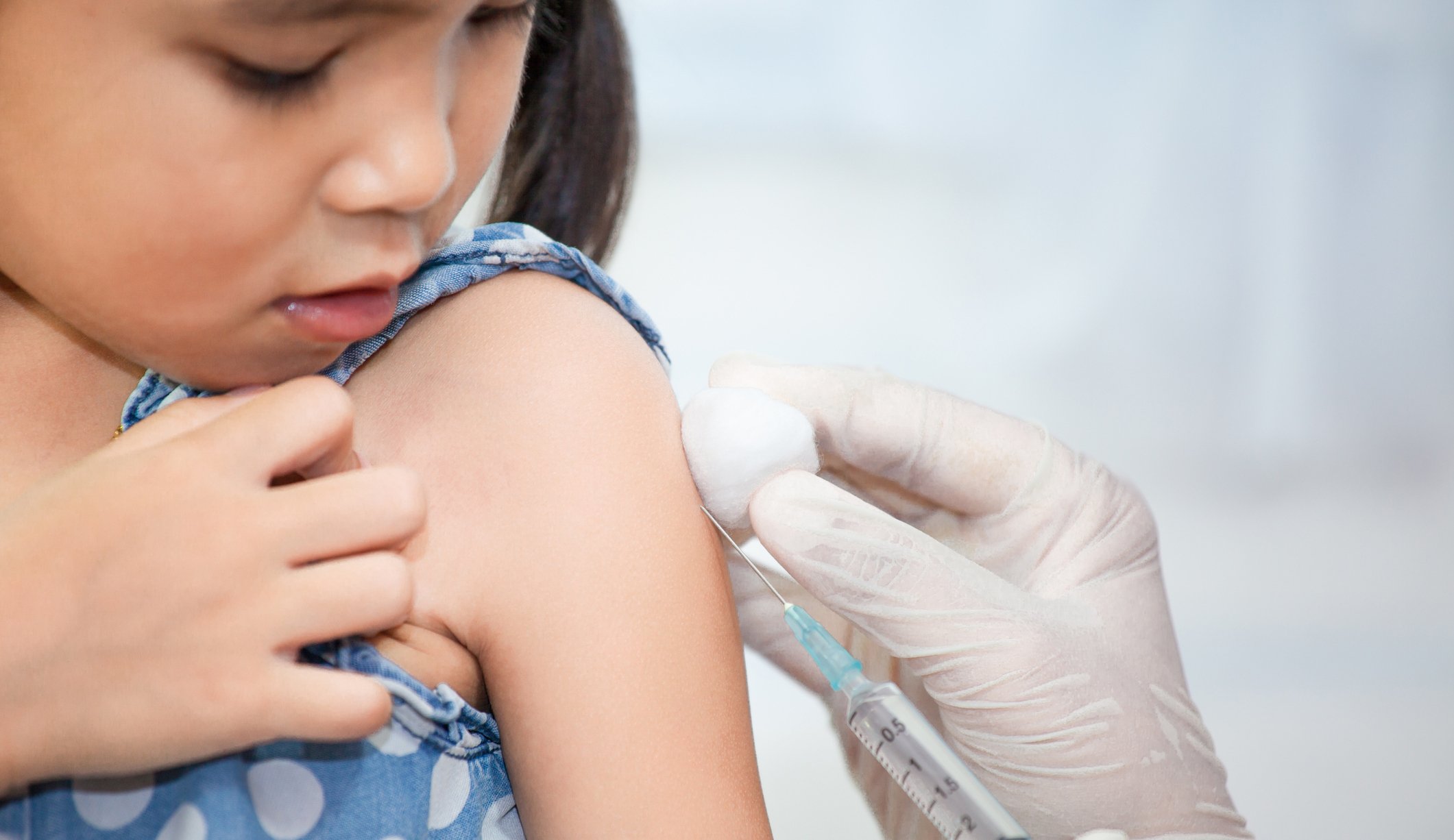Link between vaccines and allergies dismissed

Researchers at Karolinska Institutet, having compared the development of allergies in children with and without the recommended vaccinations, find no support for the claim that childhood vaccination can increase the risk of allergy. The study is published in EClinicalMedicine, a new open access journal published by The Lancet.
“Even though Sweden has a high rate of childhood vaccination, there are still some parents who are uncertain about the vaccination programme out of fear that the vaccines make children ill,” says study leader Johan Alm, consultant at Sachsska Children’s Hospital and docent at Karolinska Institutet’s Department of Clinical Science and Education at Stockholm South General Hospital. “Our study is important since it gives no support to the claim that the observed increase in childhood allergies is related to vaccination.”
Since most children are vaccinated according to the national vaccination program, it has been difficult to study whether there is a link between vaccination and childhood allergies. The current research has been carried out in collaboration with the Vidar Clinic in Järna, Stockholm, which enabled access to a relatively large group of children not vaccinated according to the recommendation.
Earlier research has shown that, for reasons as yet unknown, children with an anthroposophic lifestyle develop fewer allergies than others. Characteristic aspects of the anthroposophic lifestyle include more home births, longer breastfeeding periods, a biodynamic/organic, largely vegetarian diet and the restrictive use of certain drugs. Many children of such families also have a more individualised vaccination programme, while some are not vaccinated at all.
Children of anthroposophic families
In this present study, the researchers monitored children of anthroposophic families and compared them with children from more conventional families, who normally follow the national vaccination programme. Also included was a third group of children from families with a partially anthroposophic lifestyle. All in all, the study monitored 466 children from birth to the age of five, with detailed information on the vaccines they had been given and risk factors for allergies. Blood samples were taken at the ages of six months, one, two and five years for the purpose of analysing the presence of allergy antibodies towards common foods and airborne allergens.
 A correlation between a low level of vaccination and a low risk of allergy was observed by the researchers, especially during the first year of life, also after having statistically controlled for socio-economic status and known risk factors for allergy. But when they also controlled for the differences related to an anthroposophic lifestyle, this correlation disappeared. The risk of allergy in 54 children who at the age of five were still completely unvaccinated was no longer any different from that in children who had had the recommended vaccinations.
A correlation between a low level of vaccination and a low risk of allergy was observed by the researchers, especially during the first year of life, also after having statistically controlled for socio-economic status and known risk factors for allergy. But when they also controlled for the differences related to an anthroposophic lifestyle, this correlation disappeared. The risk of allergy in 54 children who at the age of five were still completely unvaccinated was no longer any different from that in children who had had the recommended vaccinations.
“Our conclusion is that there has to be something else about the anthroposophic lifestyle that causes the relatively low level of allergies,” says Dr Alm. “What this might be we don’t yet know, but it’s something we’ll be examining more closely.”
Carefully monitored
The study’s strengths are that the children were carefully monitored during their early years and that a significant proportion had not been vaccinated in accordance with the regulations. One weakness is that the researchers did not study the link to actual allergies, only to a blood sample-based allergy assay.
“This is an objective and generally used metric, but it is not as reliable a metric as clinically diagnosed allergies,” says Dr Alm.
The study was financed from several sources, including the ALF programme, the Swedish Asthma and Allergy Association, the Cancer and Allergy Foundation, the Ekhaga Foundation, FAS/Forte, the Milk Drop Association, the Hesselman Foundation, Karolinska Institutet, the Samaritan Foundation, the TH-Berg Foundation, Thermo Fisher AB, the Swedish Research Council, the Vidar Foundation and the Vårdal Foundation.
The study was based on the ALADDIN study, which was launched at Karolinska Institutet in 2004 to study possible environmental and lifestyle factors during pregnancy and childhood that impact on the development of allergies and other childhood conditions.
Publication
Vaccination and allergic sensitization in early childhood – the ALADDIN birth cohort
Jackie Swartz, Bernice Aronsson, Frank Lindblad, Hans Järnbert-Pettersson, Annika Scheynius, Göran Pershagen, Johan Alm
EClinicalMedicine, online 7 November 2018
